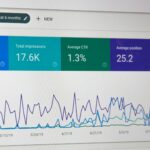Introduction
As we stand at the crossroads of the digital revolution, artificial intelligence (AI) emerges as a groundbreaking innovation steering global change. It has surged as a transformative force across all business verticals, actively redefining norms and guidelines across multiple sectors, with healthcare being at the forefront. AI has played a pivotal role in ushering a dramatic shift in healthcare paradigms, impacting disease diagnosis, treatment plans, patient care, and predictive analytics. It greatly changes the traditional ways we approach sick treatments and medicine, offering possibilities never envisaged before.
Redefining Diagnostic Methods
One of the primary ways AI has reshaped sick treatments is revolutionizing disease diagnosis. Unlike traditional diagnostic methods that heavily rely on human judgment, AI employs algorithm-driven systems, reducing human errors greatly. Machine learning algorithms analyze vast amounts of data, discern patterns, and predict possibilities with immense speed and accuracy. It facilitates quicker detection of diseases, particularly those requiring complex interpretations like cancer, neurological disorders, genetic diseases, and heart diseases.
AI-based imaging tools significantly improve diagnostic accuracy by performing intricate scans and interpreting results more effectively. AI-powered algorithms analyze these images rapidly, identifying abnormalities that could be potentially missed by the human eye. AI’s ability to learn from every case contributes to its diagnostic prowess continuously, refining its algorithms to ensure greater accuracy and speed with each diagnose, thereby mitigating the risk of false negatives and positives.
Personalizing Treatment Plans
AI is instrumental in personalizing medical treatments, enabling a shift from ‘one-size-fits-all’ generalized treatments to patient-specific, personalized therapies. It analyzes an individual’s genetic makeup, medical history, lifestyle, and environmental factors to customize treatment plans. AI algorithms provide predictive analytics that ascertain an individual’s future health risks, guiding proper preventive measures and treatment protocols. It also delivers real-time monitoring, allowing adjustments to treatment plans, optimizing benefits, eliminating adverse effects, and enhancing the overall quality of care.
Furthermore, AI has been vital in novel drug discovery and development, accelerating an otherwise tedious and long-drawn process. It carries its power of pattern recognition into the realm of research, identifying potential drug candidates and predicting their effectiveness. AI algorithms provide molecule mapping, simulating how different drugs interact with various proteins and predicting potential side-effects, hence making the drug development process more precise, safer, and faster.
Enhancing Patient Care
AI integration into healthcare also results in patient empowerment. AI-powered wearables and home-monitoring systems enable patients to manage their health more proactively. These devices can track key health indicators such as blood pressure, blood glucose levels, heart rate, and sleep patterns among others and alert users of any abnormalities.
AI-powered virtual assistants and chatbots are also quickly becoming part of the healthcare system, offering real-time advice and assistance, behavior modification, adherence to treatment plans, booking doctor’s appointments, and answering routine health inquiries. Virtual care reduces hospital visits, helping avoid exposure and reducing the burden on the health care systems.
Conclusion
As we gradually weave AI’s capabilities into the framework of sick treatments and healthcare, it becomes clear that AI has the potential to change the way we understand and practice medicine. While AI is still developing, it continues to learn, improve, and evolve, pushing the boundaries of what is possible in healthcare. It offers strategic solutions to current healthcare challenges and reshapes guiding principles for treating sickness.
Despite undeniable skepticism and challenges like big data management and privacy concerns, with appropriate ethical frameworks and public trust, the infusion of AI into healthcare can be a potent gamechanger. It catapults the healthcare sector into an era of unprecedented precision, personalization, and foresight. AI is not just transforming the healthcare landscape, but it is also giving mankind a valuable tool to better understand, manage, and enhance health, changing the guideline of sick treatments for the better.
AI has and will continue to change sick treatments dramatically. As we continue to explore its untapped potential, AI’s transformative influence on healthcare will only continue to grow, creating fascinating opportunities and extraordinary possibilities. The future of healthcare, combined with AI, looks promising and holds tremendous potential to drive significant advancements.
- Leveraging Artificial Intelligence: Transforming the Paradigms of Healthcare and Sick Treatments

- Detecting Cancer with AI: Revolutionizing Diagnosis Speed

- A Deep Dive into its Applications in Medical and Military Sectors

- How to Develop a Robot for Forex Auto Trading

- Exploring Python Libraries

- TensorFlow Setup for Object Detection in Python

- Everything About WordPress SEO: How to Increase WordPress Website Traffic

- Mastering Crypto Trading: Essential Money Management Tips for Success

- Unveiling 5 Hidden WordPress Features You Probably Haven’t Discovered Yet

